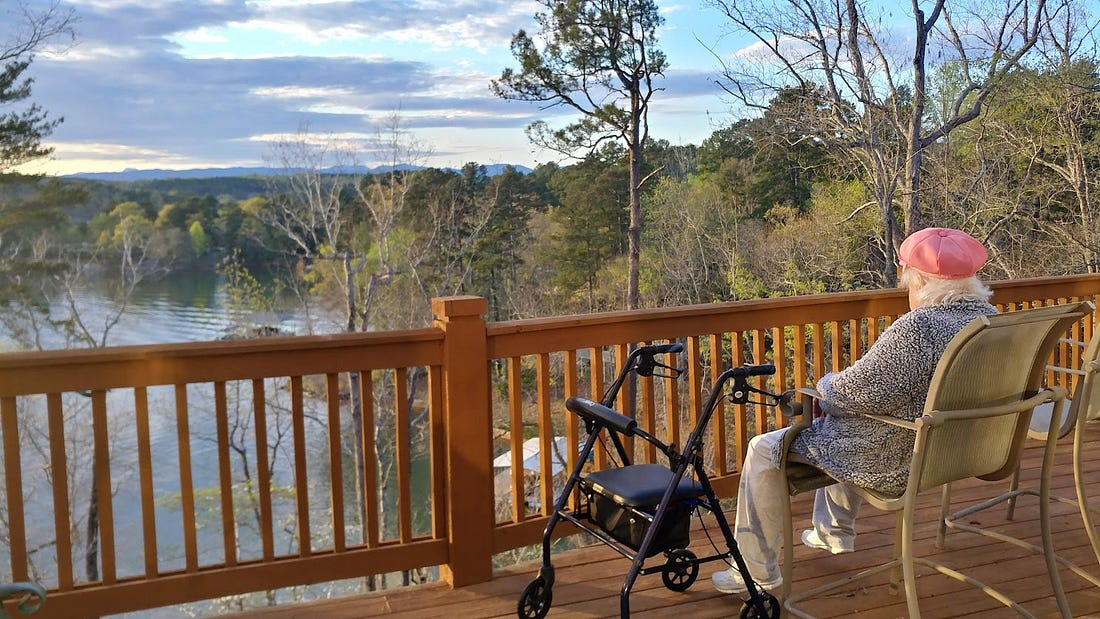
“I’ve been shot!” My mother moaned, clutching her chest. It didn’t help to say, “No, Mom, you’re fine. No one’s shot you,” because she wouldn’t listen.
I tried a different tactic. Approaching the large, leather recliner that had been her chair since my spouse and I moved her in with us, I laid my hand gently on her chest, then raised it to her face. “Look, no blood. If you’d been shot, there would be blood.”
My mother abruptly stopped moaning. “I guess I wasn’t shot,” she said, turning her attention back to Gunsmoke, the show that had triggered her delusion. Sometimes she identified so closely with the television Westerns she loved that she became part of their drama.
But it wasn’t just television that triggered delusions. One day she told my sister a long, convincing tale about someone stalking us. My sister, horrified, said, “Are you going to call the police?”
“Mom’s imagining it,” I replied. “It never happened.”
The doctor told me my mother probably had Alzheimer’s. She had started showing signs of dementia following a urinary tract infection. Antibiotics cured the UTI, but not the dementia. Her cognitive decline began shortly after she turned 100, and continued to worsen until she died four days before her 102nd birthday.
The Alzheimer’s diagnosis was based on a brief memory test that included trying to draw a clock face. One early sign of dementia is supposed to be an inability to draw a proper clock. However, I found out later that Alzheimer’s is sometimes used as a catch-all for many kinds of cognitive decline.
Why an Accurate Diagnosis is Important
I didn’t realize how many conditions contribute to dementia until I became part of a team that hosts bi-annual Caring for Caregiver conferences. Our conferences, designed to equip caregivers with resources and emotional support, feature an array of guest speakers, including elder care attorneys, hospice workers, dementia care experts, and people who have walked the journey as caregivers.